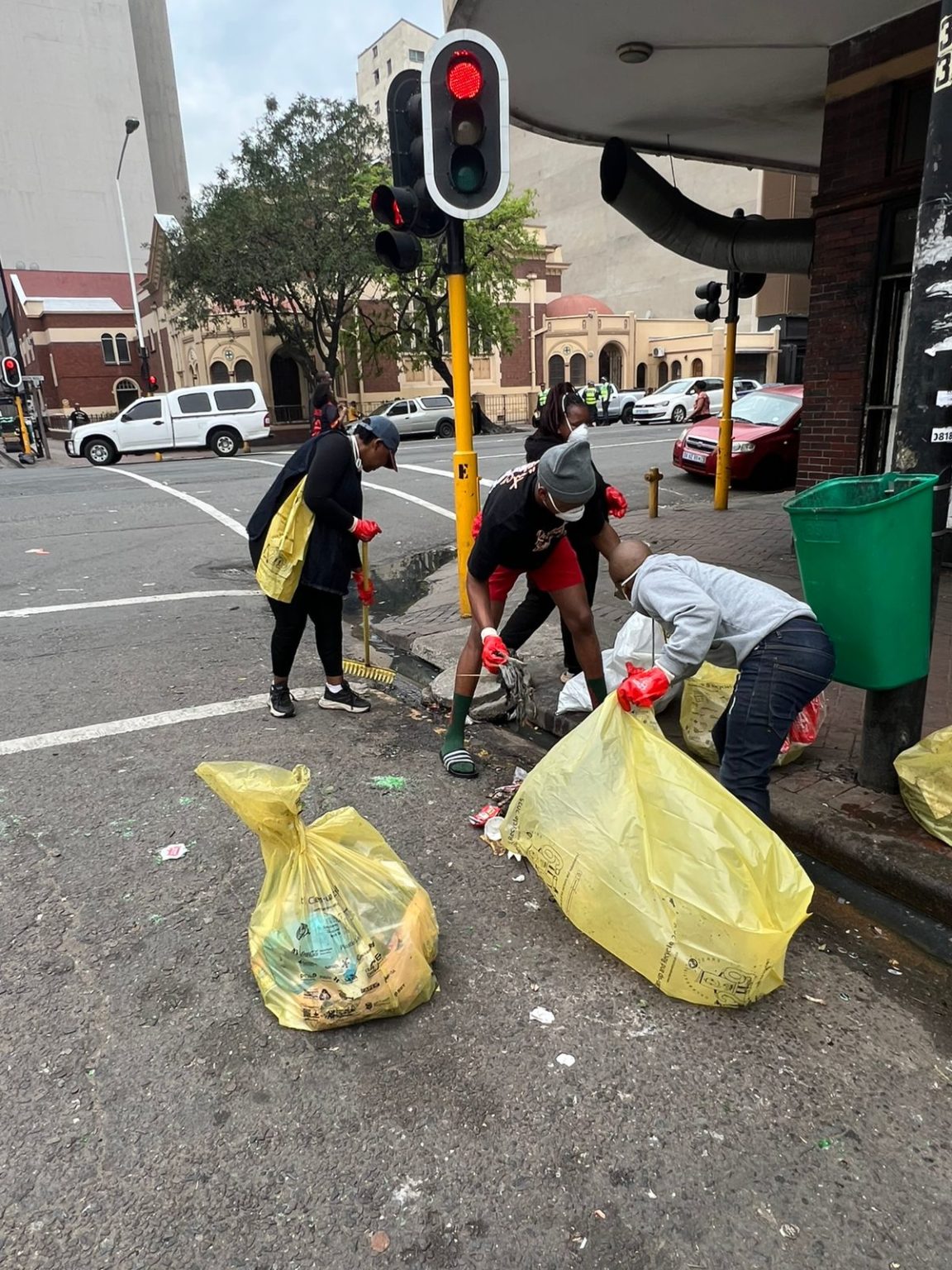By Kwanele Khanye
What is typically a bustling scene of taxis, street vendors, and litter-strewn pavements was transformed into a productive worksite as students from the Durban University of Technology (DUT) joined forces with Durban Solid Waste (DSW) for a community clean-up initiative.
Held during recess, the campaign was more than just an effort to clear litter, it became a statement of accountability, unity and shared responsibility.
Dr Manqoba Shezi, project officer of Indlulamithi Residence House Committee, who came up with the idea has lived in the cluster for three years. He said he had grown tired of the area being known more for noise and drinking than for student life.
Shezi said St George’s in the Central Business District (CBD) has changed a lot as there are now more residences, but the area has also become a drinking turf.
“It’s noisy, messy and not always conducive for students. I felt we needed to do something, even if it was just a start. At first I thought of involving all residences in the area, but eventually we focused on DUT students,” he said.
DSW education officer Thembeka Ndaba said the clean-up was also about teaching residents about proper waste management.
“Cleaning the streets was only part of the plan. We also want residents to understand proper waste management and how to reduce litter. Small things, like throwing sweet wrappers on the ground, add up to a much bigger problem.
“Seeing so many students take this seriously was encouraging. In the future, we would like to expand the educational side, maybe even go onto campus to teach students more about what our department does,” Ndaba said.
Shezi described the campaign as both practical and symbolic. He said this was not just about cleaning, but about changing perceptions.
“Too often, people in the community think of students as rebellious or careless, but by leading initiatives like this, they can show a different side. It also reflects DUT’s Envision 2030, which is about making an impact on the communities we are part of,” he explained.
Siyabonga Madlala, one of the students who was part of the campaign said the experience was eye-opening.
“It was harder than I thought. The streets were full of bottles, plastics and even rotting food. At first it felt like too much, but once you see others working beside you, you push through,” he explained.
“By the end, when the streets looked cleaner, I felt proud. For me, being in a clean environment makes it easier to focus on studies and feel at home. What made me happiest was seeing students from different levels, from second years to seniors working together. It showed unity,” he added.
The campaign also drew praise from residents who witnessed the effort. Agnes Okafor, a Nigerian street vendor who sells fruit nearby, said the difference was clear.
“I have been here for years and litter has always been a problem. It affects business because customers don’t want to purchase food from a table placed in dirty pavements. What the students did was wonderful. It shows respect for the community, and I hope they continue because we all want a clean place to live and work.”

